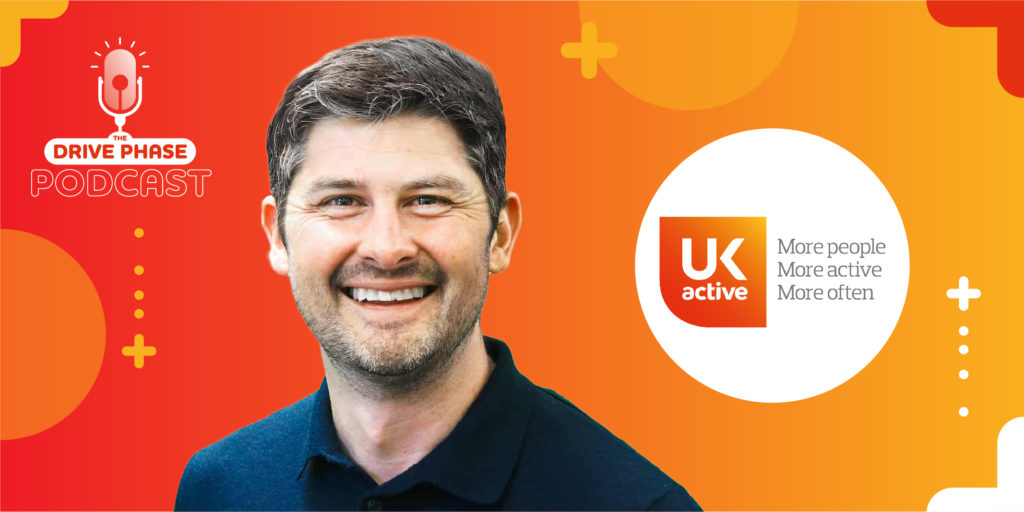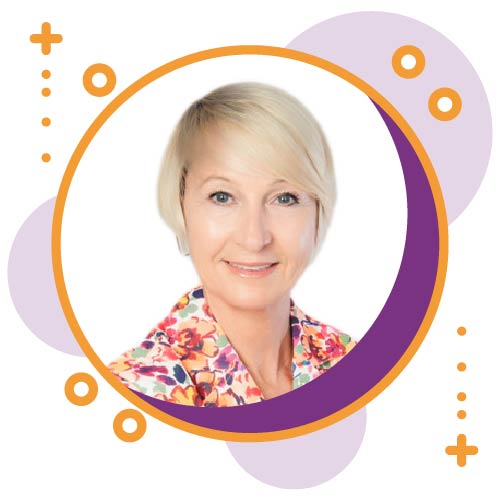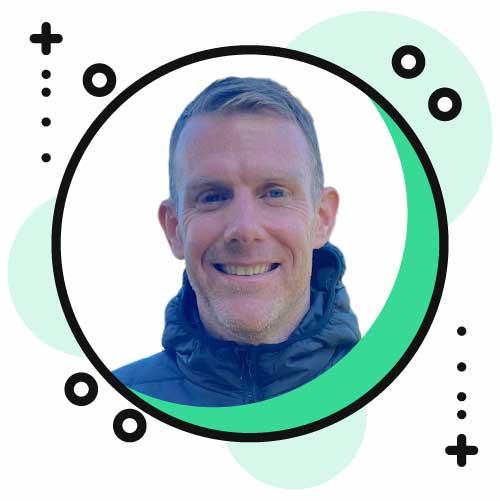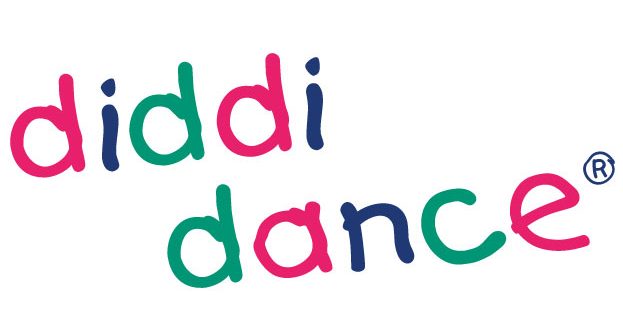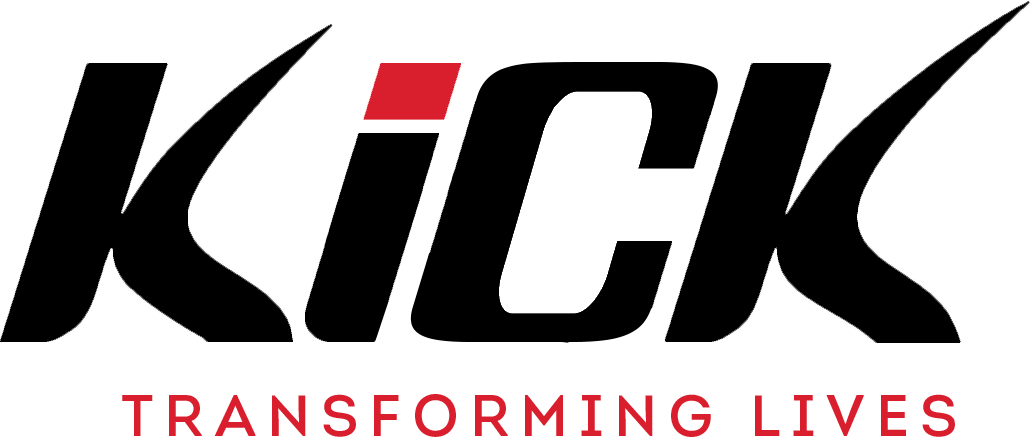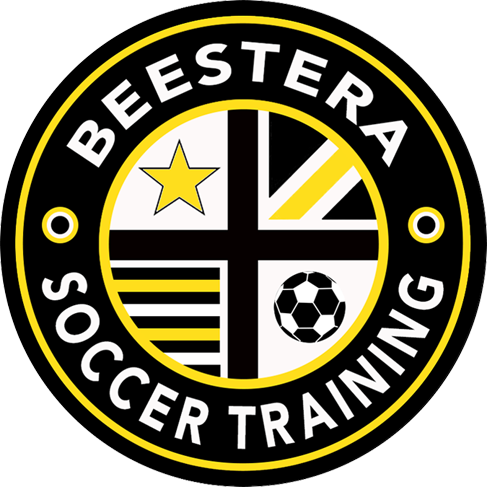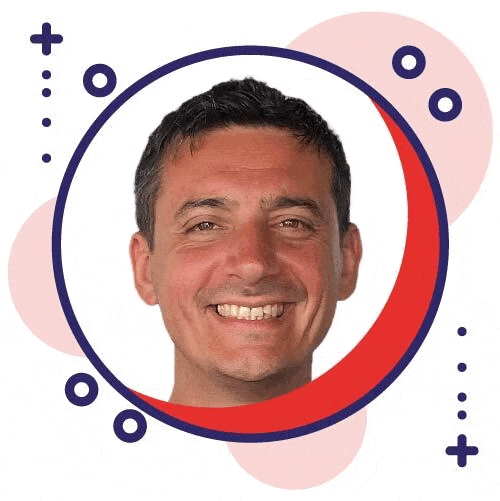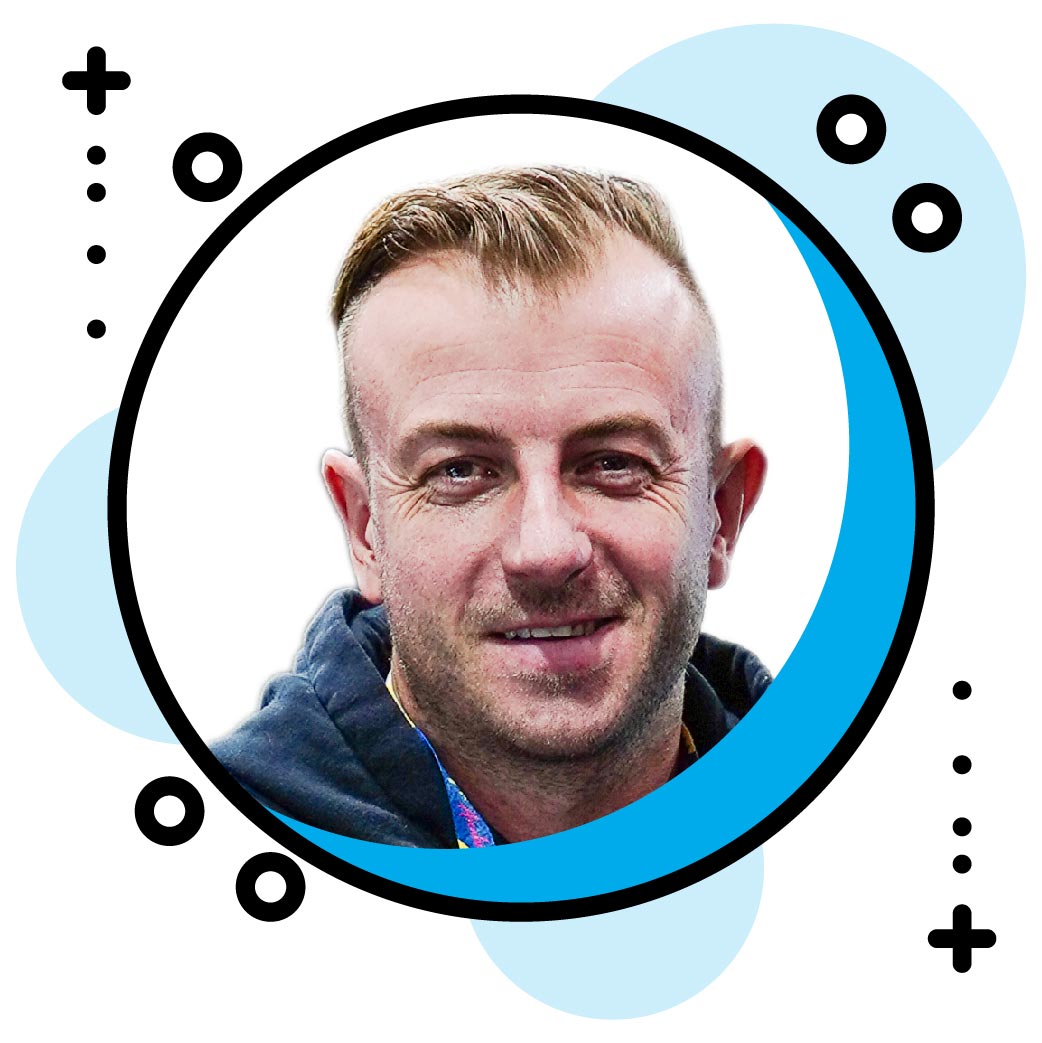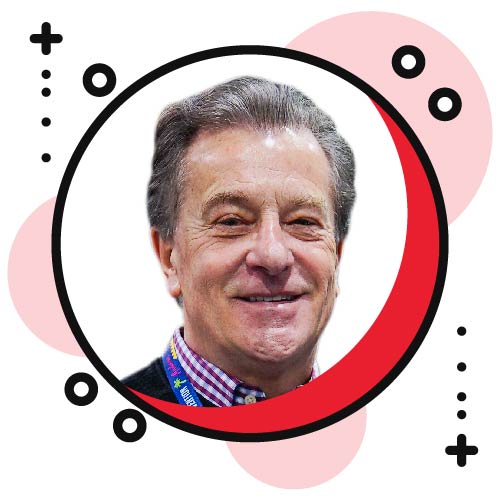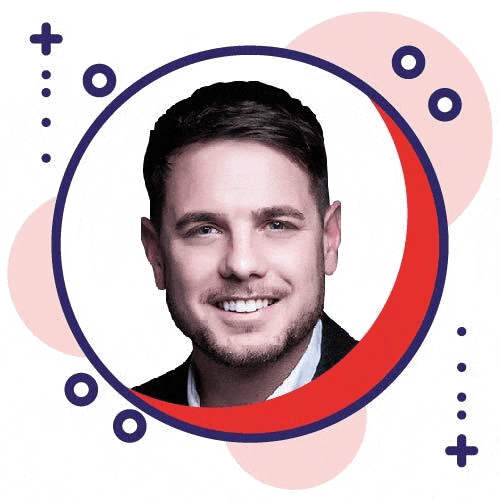Jack Shakespeare 0:00
The biggest thing for me is just creating an environment of trust. Absolute trust, absolute transparency, and shared vulnerability.
James Moore 0:16
From Coordinate Sport, it’s the Drive Phase. A show about sports founders, leaders and experts, and the stories behind their business journeys. Our guest on this episode is Jack Shakespeare. He’s a director of ukactive Kids and Director of Research at ukactive. Jack is a true champion at levelling the playing field for young people. Following a successful career at Fit for Sport and having gone through the challenges himself, Jack is well placed to represent the sector as he does in his current role. If you’re operating a sport coaching business in the UK, then you will have heard of ukactive Kids and the work they do. Jack and his team are supporting a 400 strong membership. Recorded in the middle of the second lockdown, we discussed the state of the sector at length, the post COVID environment for providers, and Jack’s focus on building a strategy that serves children from all backgrounds. We cover Jack’s journey to date and hear his insights on leadership. So sit back, and enjoy.
Really excited for our guest today. We’ve got someone who’s going to benefit our listeners greatly and someone who’s a strong champion and advocate for the importance of physical activity. Today we’ll be talking to Jack Shakespeare, the Director of Children, Young People, and Families, as well as the Director of Research for ukactive. Thanks for your time today, Jack.
Jack Shakespeare 1:46
Thanks for having me on.
James Moore 1:47
It’s no problem at all. Generally, we tend to start by looking at our guests’ early life because we believe that physical activity has a huge impact, so we like to try and take it all the way back. So do you want to tell us a little bit about your early life? Hopefully, it wasn’t too long ago.
Jack Shakespeare 2:04
Again, thanks for having me on James. I really appreciate it. It’s quite a privilege. I’d like to think I was pretty active in my early life. I had a very traditional upbringing in sport and physical activity. I played a lot of football in the winter and a lot of cricket in the summer. But I had a better relationship with sport and physical activity in my primary school years compared to secondary school. I think that’s sadly a similar story for a lot of people. I actually fell out of love a bit with sport and physical activity in secondary school. I didn’t enjoy PE in secondary school, which pushed me away from community sport as well. So a few negative experiences there.
James Moore 2:56
Can you pin that down to anything, teaching experience or other students?
Jack Shakespeare 3:02
Yeah, teaching experience is a part of it. But also, you know what it’s like when you’re in that stage of mid-adolescence. Your requirement, need, and craving for peer support is really high and probably higher than all else. I think I felt that sport and physical activity wasn’t providing that, and it pushed me away from it a bit. But fortunately, I had a very active dad, and he supported my interests outside of school, so I did maintain it. But I fell out of love a bit with it, particularly around team sports, and maybe a little let down by some of the support networks around it, but on the whole, pretty positive. Being brought up by an active family has certainly influenced the way I have tried to bring up my kids. I’ve really tried to emphasise the fun of being physically active and the adventurous side of being active with my kids.
James Moore 4:21
Definitely, whereabouts did you grow up, Jack?
Jack Shakespeare 4:25
I grew up in North Essex, on the border of Essex and Suffolk in a little town called Manningtree, which no one’s ever heard of.
James Moore 4:33
So plenty of places to go out and play then?
Jack Shakespeare 4:35
Yeah, and pertinent in today’s climate, but fortunate that there were lots of spaces to run around. The schools that we went to both had lots of space. There were lots of accessible parks and playing fields that we used to go to as kids too.
James Moore 5:02
Then something else we have in common, I think you went down to South Wales to study?
Jack Shakespeare 5:07
Yeah.
James Moore 5:08
What did you study there? Obviously, you’ve gone down there to do your degree, and then you moved on from there.
Jack Shakespeare 5:13
Yeah, you’ve done your research, James. I went down there to study sports psychology. I just got to the point where I wasn’t really sure what I wanted to do, not just what I wanted to study, but wanted to do as a career as well. But I knew I had this real interest in sport. But also the thinking behind it, and the psychology behind it and I really wanted to get a better understanding of that. So I went there to study sports psychology and had a great time doing it. I found it really interesting and genuinely draw upon some of that subject matter and learnings and experiences today, in my role and in the roles before it.
James Moore 6:06
I’m really interested because I know you travelled across to the USA to coach and work over there. Still, now it’s something that provides a massive opportunity for people looking to starting out a career, UK education, UK coaching qualifications, etc. Obviously, a background in sport makes students attractive to the American markets. I don’t know how that experience was for you. Was it part of a university degree, or did you go over there working?
Jack Shakespeare 6:35
No, it wasn’t part of my degree. Although, I guess it linked in regards to the subject. But no, I did it off my own back whenever there was work during summers at University. So I think I started after my second year at University on my degree, just went and worked on one of the Camp America programs as a sports coordinator in a kid’s camp. So 100 miles north of San Francisco, on the West Coast out there, and it was great. I ran the sports program for two years running, and then when I graduated, I got an opportunity to go back out there and continue some of that coaching. So yeah, an amazing experience for a 23-24-year-old for many reasons. Not just the coaching, but also independence, albeit obviously, the states aren’t a million miles away from our culture. But it was a really unique experience, and a life-shaping and life-defining experience, which was great.
James Moore 7:44
I guess running those programs over in the US, you would probably be able to utilise that experience when you came back, and it would be a benefit straightaway. Since when you came back, that was when you started work at Fit for Sport?
Jack Shakespeare 7:57
Yeah.
James Moore 7:58
Was it a similar type of role there? I’d be interested to hear about that.
Jack Shakespeare 8:01
Yeah, I think so. Going abroad to coach did many things, but it certainly increased and gave me that zest for working in that field. When I did it initially, during my summers at University, it was just something to do during summer. I didn’t have many career aspirations at that point, but it certainly confirmed my thoughts and feelings around it and really gave me that love for it. I think what I did get over there, which I saw as a mindset brought back with me, was this confidence that sports coaching, working with children, young people, was way more than the sport itself. I saw for the first time, as millions of other people have seen, just how beneficial community sport can be for children and young people when it’s delivered inclusively. When it’s accessible, fun and engaging. When it’s meaningful to those children, and those young people. It sounds really obvious, but I saw the opportunity for sports coaching, far beyond the sport itself and far beyond the competitive outcomes of a sport. That gave me that zest and that drive when I came back to continue working in that field. When I came back, I met the guys at Fit For Sport and started working on their summer camps. Then, I moved into London to work full time at Fit For Sport in schools and continuing holiday camp programs.
James Moore 9:58
Yeah, that’s one of the things. We are still challenged with trying to showcase the wider impact of being physically active, mental health and academics, etc. for children. But I guess in the US West Coast, probably didn’t have the bad weather we have here, obviously be nice to get out every day. So we struggle with that. But with the work at Fit For Sport, obviously we had Dean on the podcast recently, and his passion’s infectious. I was just interested in what it was like working alongside him, putting that passion into action. What was your role like over at Fit For Sport?
Jack Shakespeare 10:39
Yeah. Dean, my ex-boss. Passion is the word, his enthusiasm and energy around children, first and foremost, and his use of sport and physical activity to support children. There is no greater ball of energy than him, and that’s what drew me to the organisation in the first place, alongside Craig Jones, who was the Operations Director when I went there. It was actually with Craig that I found someone that I shared a spirit and ethos around the fun side of sport and physical activity. Competitive sport wasn’t really a thing we talked about, it was just about using sport and physical activity in games. Craig and I played more circle games than we did anything else to engage the kids. We felt that angle was a good angle to make things inclusive and introduce physical activity and sport to large groups of children. So I came in as someone that worked in holiday camps, as a coach and as an activity instructor. Then during term time, I worked in schools, so breakfast clubs, lunchtime clubs, after school clubs, extended schools, supporting PE lessons, and I just loved it. I loved everything about the role, loved the fact that we had to wear a tracksuit every day and work in schools. I’m sure we’ll explore that a bit later, but I love that school and community link. I really love seeing children that we would work with within schools and then in community settings. Whether it was weekend sports clubs or activity clubs, and whether it was the same children coming to the holiday programs, and really enjoyed that bit, and tried to develop that side of it. And then I was at Fit For Sport, for I think ten years. By the time I left, I was running the training department of Fit For Sport.
James Moore 13:05
That’s something I was going to ask. Obviously, I know that progression is common. As I said, some of the stories on the podcast so far, coming in at entry-level coaching, maybe just some casual hours, summer coach, whatever it be. Then work your way up through the organisation. In terms of that training, I know you’re going to have empathy for other providers out there. Especially in your role, now it’s going to help you with what you’re doing. What did that look like towards the end of your time at Fit For Sport? There are some stats around the number of coaches in the industry that have been trained by Fit For Sport. Could you fill us in on what that looked like, training people nationally up and down the country?
Jack Shakespeare 13:43
Yeah, good question. So I think the stats have changed now, but we have two sides to it. There’s a big focus on internal staff training and development. At the time, I think Fit For Sport were employing up to 500-600 people that were out on the ground, working in schools. So the team and I were running that training department and offering a pretty broad suite of training modules and courses to Fit For Sport staff that were out on the ground working in those schools and those holiday programs. Some of that training was accredited, recognised training, activity and leadership qualifications, that kind of stuff. But a lot was bespoke as well, stuff that you don’t learn on a formally accredited course. That’s things like running a holiday club, signing in and signing out, safeguarding policies and procedures for children’s holiday programs, that internal staff development. But also to your point, James, we run an external training program as well. We’re also working with other employers and providers to upskill their staff, helping them to work with children and young people in their programs, and with all their facilities and work closely with the health and leisure sector. So we’re helping leisure centres, gyms, and health clubs to upskill their staff to work with children and young people in their settings.
James Moore 15:26
So one of the things that keep coming up, we talk about the industry, and you probably know this term ‘white van man’ that gets thrown around a little bit in the industry. You being the lead for training, I just wanted to know if you had any thoughts on that. It’s probably a bit of a myth that came in around the PE premium when that got launched. This term of white van man, people with just a bag of balls going out and delivering sport. How do you feel about that term? What are your thoughts on that?
Jack Shakespeare 15:58
Yeah, I don’t really know what the term means. But I think it is essential that the sector strives towards quality. And what’s always been lacking is a sort of consensus around what good looks like. What are the quality standards? What are the compliance standards? And how can we benchmark ourselves as a sector about what good looks like? I think that’s a really important piece, because if we get in place a real sort of consensus on what standards we need to have in the sector, and then have some accountability measures around it. So how do we measure ourselves against it? How do we show what good looks like? And how do we show the impact that the sector is having? I think we can go forward with that. And sayings like ‘white van man’ or ‘poor practice’, then that gets exposed, that gets flushed out. Because people can then really show, based on standards and compliance, they can show good practice, whoever they are, and whatever they call themselves. I think that’s a really important part of the sector and the future of the sector. We do a lot of work around that at ukactive, around standards, around compliance. And I think the current climate, and I know we’re not here to talk too much about Coronavirus, but obviously, we can’t ignore it. I think that’s shown how important compliance and standards are around guidance, health and safety, and quality. Hopefully, by the end of today, we’ll see a lift again in community sport. We’ll see a lift in restrictions, reopening of sports centres, leisure centres, and that’s going to be placed on compliance, and based on quality, and based on health and safety, and I think we need to strive towards that. Then any poor practice gets flushed out.
James Moore 18:29
Yeah, definitely. I know you’ve touched on this already, but if we want to look at your career history to date in terms of your role at ukactive, it would be good to expand on that. What is your focus on? Just for listeners to know why it’s such a big deal for you to be here today.
Jack Shakespeare 18:55
Yeah, so I’ve got three jobs at ukactive. As I said earlier, I’m the Director of Children, Young People and Families. So that is working with the brilliant team at ukactive that drives our young person agenda at ukactive. So that’s anything from the policies that we work on to support children and young people to be more active through to the strategic projects and campaigns that we drive on the ground. I sit within that group and try to make sure that there’s a real focus coming out of ukactive on children and young people and their physical activity levels. I also head out what’s often externally called ukactive Kids. And then I’m also director of the ukactive Research Institute. So again, working with a brilliant team of data analysts and researchers to drive that agenda forward. Drive an evidence base to the whole sector, underpin the sector’s work with an evidence base. And very publicly, at the moment, our team is talking about accountability, showing and tracking the throughput and Coronavirus cases across the sector, and showing a low prevalence. It’s quality standards, health and safety, and that compliance. So I get a real privilege to work with two fantastic teams. And then I guess the third bit is that I sit on the executive team of ukactive. So more broadly, helping the organisation to move forward and progress, and that’s been quite a journey over the last eight or nine months.
James Moore 20:58
Yeah, and I know, obviously ukactive Kids sits within the ukactive banner. So it’s good to have someone like yourself banging the drum for the sports coaching and the children and young people. They’ve got a lot of work at the moment with the fitness industry and what’s happening there. What does it look like for you? Let’s pretend Coronavirus didn’t happen. I imagine ukactive Kids are going to have some strategic goals moving forward. Potentially they’ll need to be adjusted, but what are the main focuses for the next few years?
Jack Shakespeare 21:35
Yeah, it’s a good question, and I think we are in the situation we’re in, but if you maintain a strategic focus, I think of ukactive as a membership body. And at the heart of ukactive is that membership. That membership is 4500 members strong, very diverse. From leisure centres like you just mentioned there across to gyms, both public and private, across the children’s activity providers, national governing bodies, councils. It’s a real mix, and a massive part of my job is maintaining that membership and making sure that membership is equipped to support children and young people through sport and physical activity. It’s ensuring that they have the guidance, the knowledge, the information, and the tools to go out there and support children and young people. Whether that’s through our research work, our standards work, or through our thought leadership and Public Affairs work. I think that’s front and centre. I think we’ve clearly had some key focuses over the last couple of years, which are even more important now. They were still important two years ago when we published our Generation Inactive 2 report, which explored the challenges, barriers, and what’s working in regards to getting children more active, up and down the country.
James Moore 23:22
So with the membership body, we’ll leave all the notes and links in the show notes, but anyone can join? Are there any criteria to be able to join ukactive? Obviously, you’re actively looking for members all the time?
Jack Shakespeare 23:35
Yeah absolutely. We’re always growing that membership. Anyone can join as long as they have an interest in getting people more active, more often. I think what we do have is a code of practice and standards that people can also engage in, and obviously, that requires due diligence. And that requires showing those key operational practices. We want to build so we can provide a fully inclusive sector. So if anyone’s interested in that, click the link in the footnotes. But I think for us, we’ve got that mantra of more people, more active, more often. We want to talk to people in organisations that share that goal and share that passion. And I think moving forward, that goal, that passion, that drive is going to be more important, certainly to the health of the nation as we look at how we recover from these last eight or nine months. We believe physical activity will be at the heart of that, and no better place to start than children. We want to work with as many people on the ground as possible to drive that forward.
James Moore 25:05
One thing that at the moment is a real contradiction, with the issues that we’re facing in society in the UK specifically, is this idea that we’ve got an issue of childhood obesity. But at the same time, we’ve got an issue with child hunger. And I guess those two things together don’t seem like a problem we should have if that makes sense. But I know you’re doing a lot of work in ukactive to tackle both. So would you like to talk us through those? Which one do you want to unpack first?
Jack Shakespeare 25:45
Well, let’s talk about both at the same time because I think they are interconnected. One of those real key focuses for us at ukactive over the last couple of years has been supporting children during holiday times. We know that children, typically during the summer holiday period, that activity levels drop, levels of fitness drop. We conducted research a few years ago that tracked children’s fitness levels across the year, which showed that during term time, children’s fitness levels increased. But during the summer holidays, fitness levels dropped, and children from low-income backgrounds were disproportionately affected. So children from low-income families saw drops in fitness levels at a much faster rate than their more affluent peers. So really seeing an issue there. And I think that’s one of the connections there again, to childhood obesity. We also see in childhood obesity stats that children from poorer backgrounds are more likely to be overweight or obese. And so, what we’re looking at there, is an environmental problem. We’re looking at an ecosystem problem. The choices on offer to these children are not the same as those their more affluent peers have, whether it’s access to healthy food or sport and physical activity. So there’s something that needs to change there. Because I think whatever we are doing, there is a real connection between holiday hunger, holiday inactivity, and childhood obesity. Whatever we are doing right now as a country, as a system, it’s not working for poor children. It’s just not working. And you’ll see that in Sport England’s active live surveys. It’s the children from low-income families that are the least active. So children from low-income families are least likely to enjoy sport and physical activity. You see that in England’s childhood obesity stats, it’s the children from lower-income families that are more likely to be overweight or obese. So there’s clearly a connected issue there, and our real driver over the last couple of years is to not talk about those two issues in isolation. It’s to look at the environments, to look at the ecosystems, and look at how we can work with our membership in the sector to create environments where we can start to tackle some of these quite entrenched inequalities.
James Moore 28:41
Definitely, and in terms of initiatives, I know funding was announced just recently. £400 million was banded around as a headline, but looking at more detail on that, I guess you’re the man to talk to about it. I know you’ve been working hard behind the scenes. Are you able to expand on that? Can you give us a bit more detail on what that looks like?
Jack Shakespeare 29:06
Yeah, absolutely. So broadly, it’s broken up about £170 million of that is to look at covering food bills for low-income families during holiday times. And then about £220 million of that is to scale up the already existing Department for Education’s Holiday Activities and Food Programme, which has been piloted over the last few summer holiday periods in select locations across England. But now the announcement you’re referring to, and the funding attached to it is to scale that up nationally, to start supporting children all over England, from the Easter holidays 2021.
James Moore 29:59
I don’t know if this has been worked out already, but if there are providers out there that feel like they could contribute or want to get involved with that, I guess the rollout is based on population centres? How is that going to expand across the country?
Jack Shakespeare 30:13
Yeah, good question. The specifics haven’t been published yet, but it will be run in partnership with local authorities around the country. I think, really importantly, our sector can play a massive role in supporting this scheme.
James Moore 30:35
Yeah, everyone’s delivering the holiday programmes already.
Jack Shakespeare 30:42
Yeah, absolutely. And the specifics that haven’t been published yet, I met with a congregation a few days ago, and they will be issuing more guidance, but broadly it will be going out through local authorities. That engagement with local delivery networks is going to be important for local authorities to get these programs up and running. Or, as you said, James, plugging into already existing programs, there are lots of holiday programs that are already out there.
James Moore 31:08
Not trying to reinvent the wheel, I guess.
Jack Shakespeare 31:11
Yeah, absolutely. And we’ll be working closely with the government and other sector stakeholders to make sure that we can support our sector, our members to contribute and support this programme. Because I know that everyone we work with certainly is chomping at the bit to support this, and support these children during the holidays. So we’ve got to make sure that we are engaged in government, central, and local to be able to support it. I’ll repeat myself now but underpinned by quality, standards, compliance so that we are running good, inclusive, safe programmes that the government can trust, parents can trust, children can trust, so that we can make an impact on these children’s lives.
James Moore 32:05
Yeah, and I guess now more than ever, the restrictions and control measures that need to be in place, you’ve got to make sure that framework’s there. Touching on one thing, a few topics come out of it. With your research hat on, you probably have some data to back it up, or it might just be a personal feeling. But a focus of yours being research, I just wondered if you’d be able to give us any insight in terms of diversity in the sector. So we’re talking about engaging with people of all different backgrounds and socioeconomic statuses. And obviously, a lot has been spoken about recently around diversity in all industries. But specifically, coaches have a huge role to play. And if young children see coaches that maybe look like them, or sound like them, or from the same type of background? Because I don’t know if ukactive have done anything on that, and maybe not, but yeah, if we could hear your insights.
Jack Shakespeare 33:04
It’s a good question. We haven’t done any specific research on that, but I think we know that we need to enable and facilitate locally-led action and activation on the ground. And children need to have access to positive role models that look like them, that sound like them, that can set and show that positive example. And I think that what comes with supporting and developing a diverse workforce is huge. Absolutely huge. And no better to start than through grassroots, community, youth sport and physical activity programs, and give them the platforms, the resources, the support to really drive that. I think it’s absolutely massive. There’s probably a lot more work that needs to be done in that space, but putting the right positive role models in front of these children and young people is really important.
James Moore 34:13
Hopefully, this will be the last time I mention COVID, but obviously, it has had a huge impact, and ukactive has been working closely to provide support with that. For our sector, our listeners, sports coaching owner operators, and managers, leaders, etc. We’ve been saying that the demand hasn’t gone away. All the children have been locked up for so long. The demand is huge, so we feel like it’s going to come back strong. I just thought it’d be good to hear from you. I guess, some ray of sunshine from what you see from your side in terms of what the business sector looks like, moving forward.
Jack Shakespeare 34:55
Yeah, good question. I guess some of the work we tried to do is in the art of trying to predict the future a bit. What do we know? What do we think we know? There’s never going to be a more important time for our sector. Pre the first lockdown and pre-onset of widespread Coronavirus in this country. There already wasn’t enough children getting enough physical activity each day, referring back to Sport England’s active lives numbers. We know that pre Coronavirus, less than half of the children were getting 60 minutes a day of physical activity a day. So we weren’t in a great place in the first place, and I think the need will be even greater coming out of this. Hopefully, we’ll see some positive news today for youth and community sport around the lifting of restrictions. But going back to one of my other comments, I don’t believe that we can afford to go back to the old system. Because the old system didn’t cater for everybody, and the old system wasn’t inclusive enough. And the old system clearly didn’t engage enough children and young people because our stats and the inactivity levels were already pretty woeful. So there’s going to be a huge need for this coming out. There’s going to be a need for a much more inclusive and accessible sector and a much more accessible offer. Because, again, whatever we were doing before and wasn’t working for large groups of children, and wasn’t working for children from low-income families, they couldn’t access it. It wasn’t working for children with disabilities. It wasn’t working for children from different ethnic minorities and groups. So we have to change that offer. And my instinct is there’s going to need to be a decent level of disruption to change that offer and create a more inclusive offer. There needs to be agile and have the right mindset to want to change that system.
James Moore 37:34
Yeah definitely. I mean, I don’t know if you’re able to comment on this one. But in terms of looking back at last year before the pandemic, there was an issue around funding and PE premium funding etc. being announced. And I guess that took a backseat when schools were closed, and the pandemic took hold. But do you think that’s the reason it’s being held back, or the announcements aren’t as forthcoming? Do you think that’s around the fact that it wasn’t working before? And obviously put a lot of money into it, and maybe something needs to be done differently? I don’t know if you’re able to comment on that one or not.
Jack Shakespeare 38:12
I think there are different aspects of that. There’s a lot of money being pumped into that, and a lot of good work has happened because of it.
James Moore 38:25
Yeah, definitely.
Jack Shakespeare 38:27
Let’s not shy away from it, a lot of brilliant work has happened, and a lot of high impact work has happened. And a lot of children have been helped to be more active because of that fund. I think there are some clear gaps around accountability and clarity of guidance. I think the biggest issue, certainly recently, has been the hand to mouth nature of it. The situation we found ourselves in the last academic year around not having clarification around the future of it until the last minute is not a situation we want to get in. But we’re sat here on the 23rd of November, and we’re in the same position again. So that needs to be cleared up. I think there needs to be an evolution of it, and again we’ve talked about accountability and guidance. But ring-fence funding going into schools to look at raising sport and physical activity levels is a good thing. I think the thing here is we need to get out of this short term approach to it all and start to carve out and develop long term commitments that outlast four-year political cycles. Focus on children’s health, focus on children’s physical activity, whether it’s through things like the PE and Sport Premium, or the Department for Education’s Holiday Activities and Food Programme, because that is just one more year. So we’re sat here, and we’ve applauded that announcement, and it is great. And that’s two years of lobbying and campaigning, and not just us but many other organisations. Child food and poverty organisations, children’s sport and physical activity organisations, Marcus Rashford getting involved, it was brilliant. But it’s just one year, so we’ve just got a one-year commitment to that, and it’s not even a full year.
James Moore 40:42
And we know it’s going to take longer than a year to solve the problem, right?
Jack Shakespeare 40:46
Yeah, 100%, it’s going to take a generation. So we’ve got one year of that. We’ve got no commitment to the PE and Sport School Premium beyond this academic year. And we talked about it in Generation Inactive 2, our report, that we want to see a much longer-term commitment to children’s health to physical activity and children’s engagement in sport, and get some green shoots. Sport England have just opened their most recent public consultation on their up and coming 10-year strategy. That’s a bold statement to say, this strategy will outlast these four-year political cycles, and we want to lay a market down and develop a long term mindset. What a great opportunity that is to look at long term commitments to other strategies in this space. Because I think one thing on that is a 10-year strategy. It means that for children going to reception class next academic year, this strategy will follow them through to the middle of secondary school. What a great opportunity to get hold of a whole generation of kids and see them all the way through into high school and harness that and support that and facilitate that love for being physically active. I think long term plans also adapt people’s mindsets. If you have short term funding cycles, they are often driven by a need for numbers or a drive for shortcuts and don’t necessarily lay the foundations for long term gains. And as you’ve just said, it takes much more than a year to change.
James Moore 42:39
Sure, yeah, and I think there are many organisations, obviously like you said that short-termism. There’s a lot of people doing good work out there, and the impact needs to be there from the start. It’s getting there, but it wasn’t there when the premium was initially released. Especially in the commercial side of the sector, a lot of great work there. A lot of commercial businesses were collecting data and understand the impact that they’re having. So they’re doing a great job, and if that’s something that could spread out across to the providers it would be great.
Jack Shakespeare 43:15
I think you’re right, and that measuring impact is really important. As a children’s activity sector, we need to get a hold of that and bring that in. We need to be looking at the impact of the sector. How many children and young people are there? Is the sector engaging on a weekly, monthly, and annual basis? What types of activities are the children doing? What are the age groups, where are they doing it, in school, in community settings? So we can understand a much clearer picture of what’s going on because I think data gives us a state of play, but it also should be there to learn from and paint an accurate picture of what’s going on. It gives us a platform to make informed decisions and improve what the offer is, improve the inclusiveness and the accessibility of the offer. But we can only do that if we understand where the gaps are and learn about what is working and what isn’t working. But I think also there’s a lot of good stuff that happens that’s hard to measure. The ability for community providers to build relationships with young people on the ground, the importance of trust between that local community provider, and the young people that come through the doors. That’s quite hard to measure, but we can’t overlook how important that is. And I think there needs to be flexibility and funding so that we value those aspects as well.
James Moore 45:06
I appreciate that. Let us switch gears a little bit, turning away from the heavy policy stuff. What we try and do on each of the podcasts is try to get a little bit of insight from yourself, in terms of your leading the huge team. Do you have any tips on leadership or especially communications? You’ve got so many moving parts within ukactive and all the 1000s of members. How do you go about approaching leadership and communication?
Jack Shakespeare 45:38
Yeah, it’s a bit of a crash course. But I think the biggest thing for me is just creating an environment of trust. Absolute trust, absolute transparency, and shared vulnerability. We tried to focus internally on those trusting teams, to focus on everyone within our teams having the confidence and a sense of agency, where they have the information and confidence to speak up. My job is to create that environment and create that culture where people feel confident. They’ve got the space to raise concerns, raise challenges, but equally and often, more importantly, be innovative, and have the confidence to bring new ideas to the table. So yeah, that openness, that transparency, that sense of trusting teams is really important to us. And I think over the last nine months, where everyone’s kind of shifted the way in which they work. You and I are now obviously doing this virtually, I think that’s been more important because you’ve gone from often working spaces where you have a meeting and then you walk away, but there are lots of conversations that happen in the margins, to now having a meeting on the computer and then everyone, presses the finished meeting. And you’re on your own again, and you haven’t got that support network around you. And you haven’t got that sense of validation about some of the decisions that have been made. So I think that idea of trusting teams, and that idea of openness and transparency has become even more important for us. So that everyone within the team has the confidence like I say to speak up and speak out.
James Moore 47:40
Definitely, and hopefully, we can get back in the office together soon. But I don’t know how long it will take for that to happen. The last one for me, just looking at your daily routine. What’s a day in the life look like, leading and being in your role. Do you have any habits or things you do to try and stay top performance, business-wise?
Jack Shakespeare 48:04
I don’t know how top performance it is. But my routine, I’ve got four-year-old triplets. My wife and three four-year-old boys are in the house. So getting them to school in the morning is the biggest job of the day, I think.
James Moore 48:22
Yeah, I’ve only got one, and that’s hard enough.
Jack Shakespeare 48:25
Yeah, getting three four-year-olds in a shirt and tie to go to primary school in the morning is quite an interesting process. But it’s an incredible level. They definitely keep me grounded. So I think at the moment, I don’t have the morning commute. Our head office is in central London, and I live in southeast London. So I try to replace that. Something that I’ve really tried to implement into my daily routine is a lot more reading. And that sounds like a really obvious thing to say. But our ex CEO Steve Ward. I asked him when I first came to ukactive. And it was a bit of a naive question, but I said, how do you know everything? Well, number one, you never know everything, and you need to make peace with that pretty quickly. Otherwise, you’ll go mad. But number two, he said I just read a lot. I just read, and I know it’s a really obvious thing to say, but I carve out time in a day to read. And that’s helped. It gives me a sense of calm, and a sense of being able to keep up to date with whether it was different articles or different sort of sector trends, or looking back and getting into new books or whatever it is. So, a lot more reading. The kids keep me humble definitely, keep me levelled. And accepting that you’ll never know everything, which is one of the best things I think you can do. Because if you feel like you need to know everything, you’ll never be mentally ready for everything. If you accept that you’re not going to know everything, but surround yourself with people that might know different things. But also be ready to put your hands up and say, I don’t know, I don’t know this. Let’s work through it together. And I think that’s been a real learning curve for me.
James Moore 50:34
Yeah, as I said, that probably goes into leadership philosophy as well there, if you empower other people and begin building a team around you with the knowledge you need. Yeah, definitely. I was surprised you said reading with the four-year-old triplets. How do you find the time time to do that?
Jack Shakespeare 50:50
Yeah, I get up an hour before everyone else in the house just to have an hour of peace and get that in.
James Moore 51:01
In terms of books, anything that you’d recommend reading? Something you’d want listeners to check out?
Jack Shakespeare 51:10
Yeah, great question. I’m looking at the bookcase now, and I would say there are two books I’ve read recently, one by Simon Sinek, called The Infinite Game. In that, there’s a lot around that long term thinking that we’ve touched on a bit in this podcast, and how long term thinking impacts mindset. I think that’s a really good one. But then also a board member of Sport England, Chris Grant, has recently published a book called Better Decisions. It’s more of a bite-sized book that talks about getting yourself in the right environment and the right mindset to make decisions. And I think with the backdrop of the last nine months, the people’s ability to make decisions with other people around them in quite volatile, uncertain contexts and climates are really useful. So yeah, those two books are really good.
James Moore 52:12
I love that, cheers. I’ve added both of those to my list, and I’ll put all the details in the notes. So yeah, really appreciate your time, Jack. And thanks very much. If there’s anything you want to share with the listeners, or anywhere you’d like them to go, and I know you’re regularly doing updates on new ukactive, but was there anything you wanted to pass on?
Jack Shakespeare 52:32
Well, I’ve referred to our Generation Inactive 2 report. So yeah, go onto the ukactive website, and then in the Kids section, you’ll find that report, and then you’ll be able to get an update on all the stuff that we are doing.
James Moore 52:50
Brilliant, thanks very much, Jack. Appreciate your time today.
Jack Shakespeare 52:55
Thanks, James.
James Moore 52:58
Thank you for listening to this week’s show. You can subscribe anywhere you get your podcasts. If you’d like to get in touch with us, you can write to us at drivephase.podcast@coordinatecloud, tweet us @coordinatesport or follow us on Instagram @coordinate_sport or on my account @james_ventures. This episode was produced by Nancy Kwamboka, with support from Claire Goodchild and Lola Small. And a special thanks to Rochelle. I am James Moore, and you’ve been listening to the Drive Phase from Coordinate Sport.
